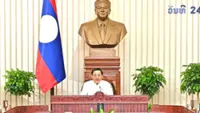RISING US interest rates, combined with quantitative tightening, are frequently disruptive to emerging market economies (EMEs), causing capital reversals due to interest rate differentials, increased debt burdens, increased import costs, exchange rate depreciation, and a tightening of financial conditions, which can lead to currency and financial crises.
The incredible (Paul) Volcker disinflation that occurred in the early 1980s, which saw a steep rise in US interest rates to fight inflation, was associated with a sharp rise in the incidence of financial crises in EMEs.
Already a subscriber? Log in
Get 20% OFF The Star Digital Access
Cancel anytime. Ad-free. Unlimited access with perks.





